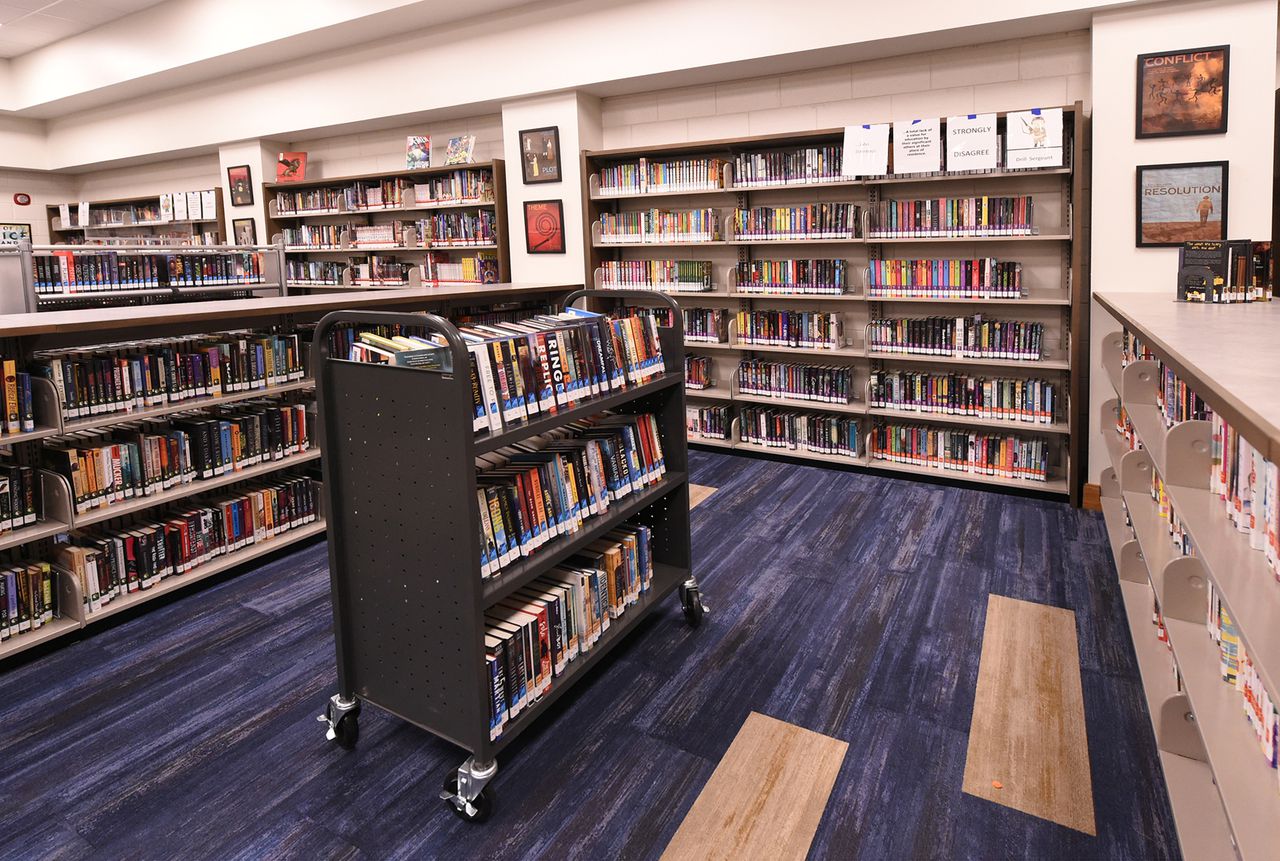Book bans are a local affair in Alabama schools. That could change.
A Shelby County middle school removed a book about the Black Lives Matter movement in 2022 after a local father complained.
Daniel Hill considers his effort, one of only two book complaints the district tallied since 2021, a victory, but says there are other books he’d also like to take out of his daughter’s school library.
So far, while Alabama has followed other states in trying to limit discussion of critical race theory, LGBTQ issues and other “divisive concepts” in school, the state has not tried to enact explicit book bans.
Instead, it’s up to parents and activists to take a book-by-book, school-by-school approach. And so far, experts say, recent challenges have been limited, though complaints have had an impact on some school activities, events and resources.
Read more Ed Lab: Alabama lawmakers consider increased school choice, tax credit scholarship options.
Read more Ed Lab: Alabama cuts more pre-K equity resources after firing state official.
In 2022, an American Library Association spokesperson told AL.com the organization was aware of 11 challenges in Alabama. Only one challenge was about a book in a school library, Shawnda Hines said. Twenty-four titles were challenged, with 20 of those books involving LGBTQIA+ characters or authors.
The American Library Association’s Office for Intellectual Freedom collects voluntary reports about book challenges. Its annual report shows most challenges are made by parents (30% of all challenges) and are about materials at school libraries (41% of all challenges).
Shelby County book challenges
Shelby County parent Daniel Hill said his daughter told him about a book, “Call and Response: The Story of Black Lives Matter,” after she saw it prominently featured in a hallway at her middle school.
The book, written by New York Times editor Veronica Chambers, lays out the timeline of the Black Lives Matter movement and how it was shaped by history. Chambers could not be reached for comment.
Hill, who is white and whose children are mixed race, said he thought the book promoted and “glorified” the movement. He didn’t think it belonged in a school.
“There are a lot of issues from promoting these ideas,” he said, “and I see it as planting seeds. These children would not be considering a fraction of this stuff if it wasn’t being promoted and pushed.”
Hill called the principal at Oak Mountain Middle School who told him the school had a process for challenging books. Hill completed the form and presented his case in front of a panel at the school.
The panel, made up of teachers, parents and students, he said, then voted to keep the book in the library. The principal appealed the school’s decision to the district level, according to Hill.
The school board’s legal counsel thought the book could be in conflict with a recent state intellection freedom rule, and recommended it be removed from circulation, according to a spokeswoman.
Only one other challenge has reached the district level in Shelby County since 2021, she said. That book was returned to circulation.
“I was personally disappointed that I had to go through a process for something that I feel is so obvious,” Hill said.
“It was satisfying to have that [book] removed, but, in a general sense, I think the victory was just a drop in the bucket. But it’s not an efficient way, in a general sense, to combat what’s going on up there.”
Hill claimed the library now has more objectionable materials. He’d like the principal to exert more authority over the materials in the school library and said it would be difficult to challenge all of the books he found objectionable.
“I’m not prepared to come up there and contest books nonstop.”
LOCAL Alabama, a nonprofit organization working to “restore freedom, liberty, and constitutional values in our local communities,” asked communities to share objectionable material with them via an online form in August.
A representative of the organization told AL.com the group had not received any information about objectionable library books as of the end of March.
Baldwin County book challenges
In an effort to determine how prevalent book challenges are, AL.com sent requests for records to eight Alabama school districts for records related to school library challenges from Jan. 1, 2021, to March 31, 2023.
Six school districts responded, including Shelby County.
Birmingham, Mountain Brook, Florence and Vestavia Hills City school districts said they received no formal challenges about school library books during that time period.
Baldwin County, a fast-growing district in south Alabama, said it had received a total of four challenges in 2021 and 2022, but only one was about a library book.
The state board of education
In December, Alabama Board of Education Vice President Wayne Reynolds asked why there is no statewide policy on how to challenge books and materials.
Andrew Maxey, who chairs a task force exploring new standards for school libraries, said he believed local school boards should develop book challenge policies. Currently, local school boards each make up their own rules.
Maxey and other members of the Library Task Force presented a draft of “Guidelines for Exemplary School Libraries” to the state board at their December work session.
The board delayed a January vote to adopt the standards.
Alabama Superintendent Eric Mackey told board members the department wanted to revise some of the standards and would ask the committee – 16 school librarians among the 20 members – to review those revisions before bringing it to the board for a vote. That would likely happen this summer, Mackey told AL.com.
